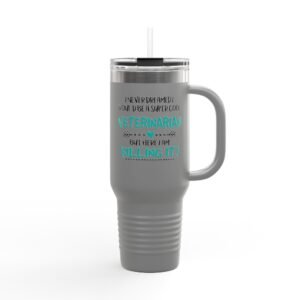In today’s digital world, screens are everywhere—whether it’s our phones, tablets, laptops, or TVs. While these devices keep us connected and entertained, they can also sneakily mess with one of the most important parts of our health: sleep. If you’ve ever found yourself tossing and turning after a late-night scroll or binge-watch session, you’re not alone. In this article, we’ll explore how screen time impacts your sleep and share some easy, practical tips to help you unwind and catch those all-important Z’s. Let’s dive in and find the balance between tech and rest!
Table of Contents
- Understanding How Screen Time Disrupts Your Sleep Cycle
- The Science Behind Blue Light and Melatonin Suppression
- Simple Habits to Minimize Screen Time Before Bed
- Easy Tech-Free Evening Rituals for Better Rest
- To Wrap It Up
Understanding How Screen Time Disrupts Your Sleep Cycle
When you spend hours staring at screens before bed, it can wreak havoc on your body’s natural rhythm. The blue light emitted from phones, tablets, and computers suppresses the production of melatonin, the hormone responsible for regulating sleep-wake cycles. This delay in melatonin release confuses your brain into thinking it’s still daytime, making it harder to fall asleep and sometimes causing restless nights. Plus, the mental stimulation from engaging content keeps your mind wired when it should be winding down.
Beyond light exposure, the content you consume can also trigger emotional or cognitive arousal—whether it’s the stress of checking work emails or the excitement of binge-watching your favorite show. These factors combined can lead to reduced sleep quality and a shorter overall sleep duration. To reclaim your nights, try limiting screen use at least an hour before bed, using blue light filters, or engaging with calming rituals like reading a book or listening to soft music instead.
- Enable night mode on your devices to reduce blue light exposure.
- Set a digital curfew and stick to it consistently.
- Replace screen time with relaxing activities such as meditation or gentle stretches.
The Science Behind Blue Light and Melatonin Suppression
Our devices emit a specific type of light known as blue light, which operates at a short wavelength and high energy level. This light has a profound effect on the pineal gland in our brain, which regulates the production of melatonin, the hormone that signals it’s time to sleep. When blue light floods our eyes, especially during evening hours, it tricks our internal clock into thinking it’s still daylight, leading to reduced melatonin synthesis. As a result, falling asleep becomes harder, and the quality of rest diminishes, leaving many of us feeling groggy the next day.
- Disrupted circadian rhythm: Blue light delays the natural sleep-wake cycle, pushing bedtime later.
- Reduced melatonin levels: Less hormone production means difficulty initiating and maintaining sleep.
- Increased alertness: Exposure can boost brain activity, counteracting feelings of tiredness.
Understanding this interaction empowers us to take simple steps toward healthier sleep habits. Although technology is integral to modern life, being mindful of blue light’s effects can help preserve our natural rhythms. Tools like screen filters, “night mode” settings, or even wearing blue-light-blocking glasses are practical ways to protect melatonin production. By integrating these small changes, we can restore balance and enjoy more restful nights, all without giving up our favorite gadgets.
Simple Habits to Minimize Screen Time Before Bed
One of the easiest ways to reduce screen time before bed is to create a wired-down routine that gently signals your brain it’s time to wind down. Consider setting a nightly alarm or reminder about an hour before bedtime that tells you it’s screen-free time. Replace scrolling with activities like reading a physical book, journaling, or practicing light stretches. Keeping devices out of arm’s reach, such as in another room or across your bedroom, also reduces the temptation to glance at notifications or social media feeds.
Another simple habit is to utilize technology itself to help you. Enable blue light filters or “night mode” on your devices, which soften harsh light that can interfere with melatonin production. You might also try apps that limit your usage or block distracting sites during your designated wind-down period. Together with calming activities like deep breathing or listening to soothing music, these habits make the transition from screen glow to peaceful sleep much smoother and more natural.
Easy Tech-Free Evening Rituals for Better Rest
Unwinding without screens might sound challenging at first, but it opens the door to much more restful nights. Try swapping your usual phone scroll for a few simple, calming habits that nourish both body and mind. For instance, consider soaking in a warm bath infused with lavender or chamomile — scents that gently ease tension and prepare your senses for sleep. Another great approach is journaling your thoughts or jotting down what you’re grateful for; this practice helps declutter your mind and replace blue light stimulation with reflective calm.
Here are some easy-to-adopt ideas that can become your new tech-free evening staples:
- Reading a physical book or magazine with a soft bedside lamp
- Gentle stretching or yoga to relax muscles and reduce stress
- Drinking herbal tea like chamomile or peppermint to encourage relaxation
- Listening to soothing music or nature sounds instead of screen-based entertainment
By integrating these rituals, your brain gets a clear signal that screens are off and rest is on, helping you drift off naturally and wake up feeling rejuvenated.
To Wrap It Up
And there you have it—understanding how screen time affects your sleep is the first step toward better rest and brighter mornings. It’s all about finding that sweet balance and making a few simple tweaks to your daily routine. Whether it’s swapping your phone for a book before bed or setting a “digital sunset” hour, small changes can make a big difference. So go ahead, give your eyes (and your mind) a break, and enjoy the peaceful sleep you deserve. Sweet dreams!
Related Products
-
Sale!
Frida Mom 2-in-1 Postpartum Pads, Absorbent Perine…
Mom Original price was: $19.99.$15.19Current price is: $15.19. -
John Deere Bubble Lawn Mower for Toddlers, Bubble …
Kids $29.99 -
Hanes Men’s EcoSmart Fleece, Pullover Crewneck Swe…
Clothing $9.31







